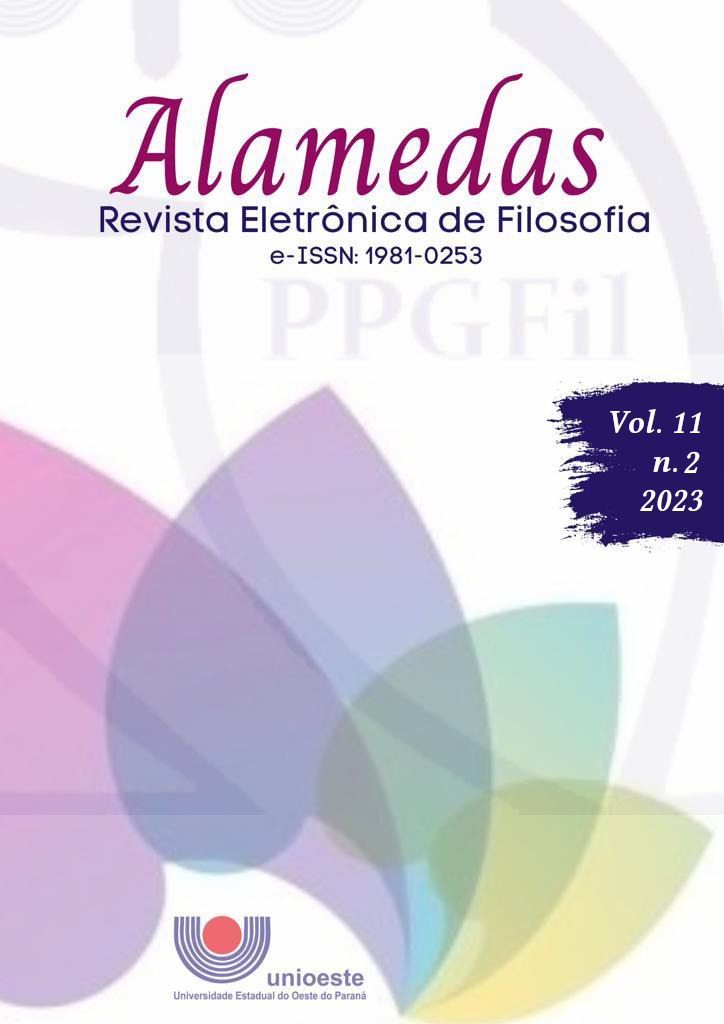Ensaio sobre eros e o ensino de filosofia
uma reflexão a partir de Platão e Han
Abstract
This paper aims to reflect on the teaching of philosophy and Eros. We seek to think from Plato in his work The Banquet and Byung-Chul Han's The Agony of Eros. What is it to teach philosophy? Is it possible to teach the unteachable? In this way, reflecting on Eros and the teaching of philosophy allows us to investigate the importance of Eros in the act of philosophizing. From this perspective, love is born in negativity, it is untimely! And we ask: "is there still room for love"? "Is there room to think about love/knowledge? With this society of tiredness and transparency, is there still room for love? As Han puts it: "It is thought today that love is perishing because of unlimited freedom of choice, numerous options and the coercion of the optimum, and that in a world of unlimited possibilities, love is not possible. " [1] Too much reason? Technological extension? Denial of the other? A high level of positivity? Narcissistic self-reference? This being said, we plunge into a reflection on love and the act of teaching philosophy.
[1] Agony of Eros, 2014, p. 9.
Downloads
Published
How to Cite
Issue
Section
License
Copyright (c) 2023 Alamedas

This work is licensed under a Creative Commons Attribution-NonCommercial-ShareAlike 4.0 International License.
Aviso de Direito Autoral Creative Commons
Política para Periódicos de Acesso Livre
Autores que publicam nesta revista concordam com os seguintes termos:
1. Autores mantém os direitos autorais e concedem à revista o direito de primeira publicação, com o trabalho simultaneamente licenciado sob a Licença Creative Commons Attribution que permite o compartilhamento do trabalho com reconhecimento da autoria e publicação inicial nesta revista.2. Autores têm autorização para assumir contratos adicionais separadamente, para distribuição não-exclusiva da versão do trabalho publicada nesta revista (ex.: publicar em repositório institucional ou como capítulo de livro), com reconhecimento de autoria e publicação inicial nesta revista.
3. Autores têm permissão e são estimulados a publicar e distribuir seu trabalho online (ex.: em repositórios institucionais ou na sua página pessoal) a qualquer ponto antes ou durante o processo editorial, já que isso pode gerar alterações produtivas, bem como aumentar o impacto e a citação do trabalho publicado (Veja O Efeito do Acesso Livre).
Licença Creative Commons
Esta obra está licenciada com uma Licença Creative Commons Atribuição-NãoComercial-CompartilhaIgual 4.0 Internacional, o que permite compartilhar, copiar, distribuir, exibir, reproduzir, a totalidade ou partes desde que não tenha objetivo comercial e sejam citados os autores e a fonte.


